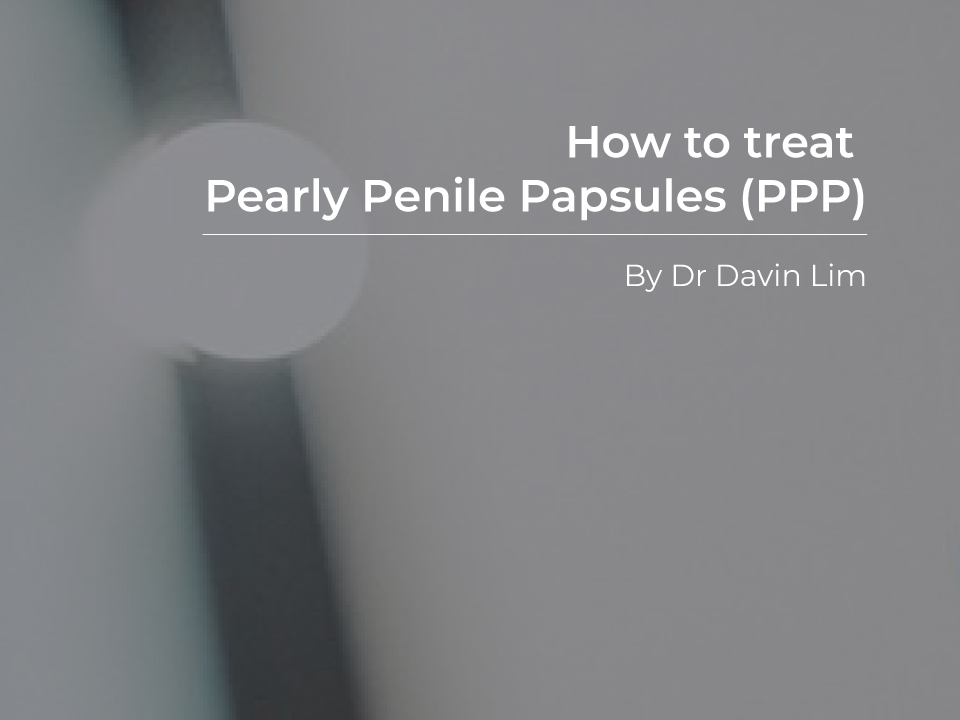Dermatologists are experts in the management of genital skin disorders including Fordyce spots, Pearly Penile Papules, angiokeratomas, genital warts, vitiligo & other skin conditions. We offer discrete virtual consultations for the convenience of patients. In most cases we can quickly identify the concern & put your mind at rest.
Cutis Dermatology treats a variety of genital skin conditions.
- Pearly Penile Papule Removal
- Fordyce Spot Removal
- Genital Wart Removal
- Angiokeratomas of the Scrotum
Our results speak for themselves
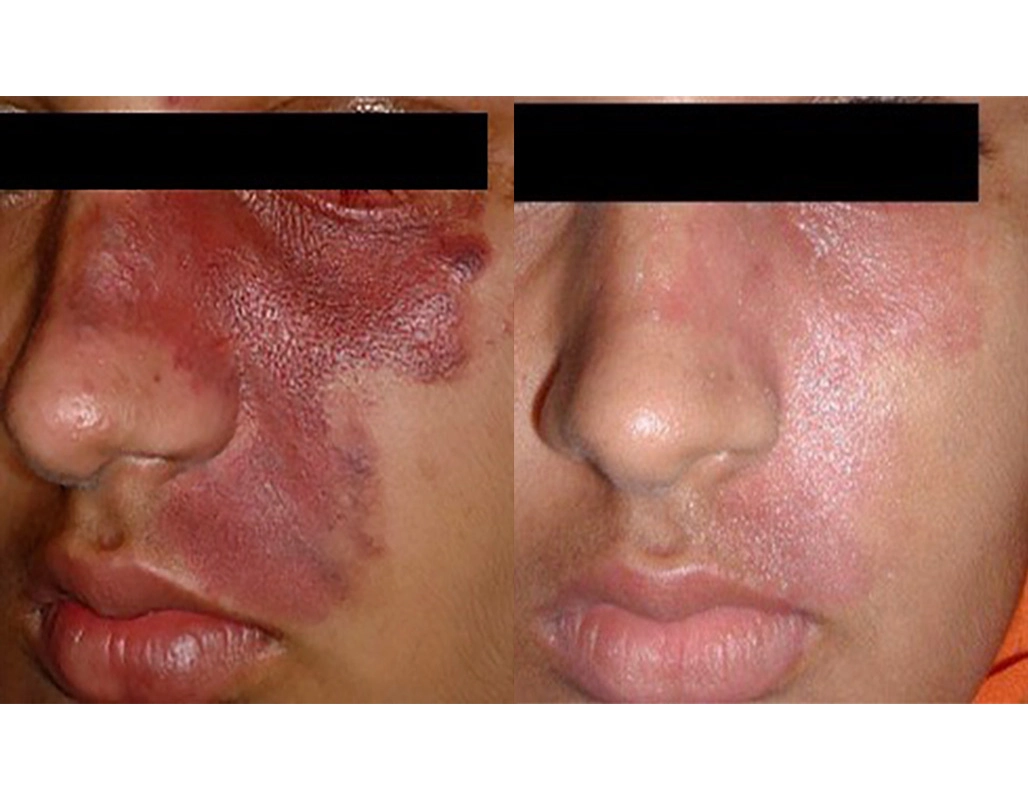
Before
After
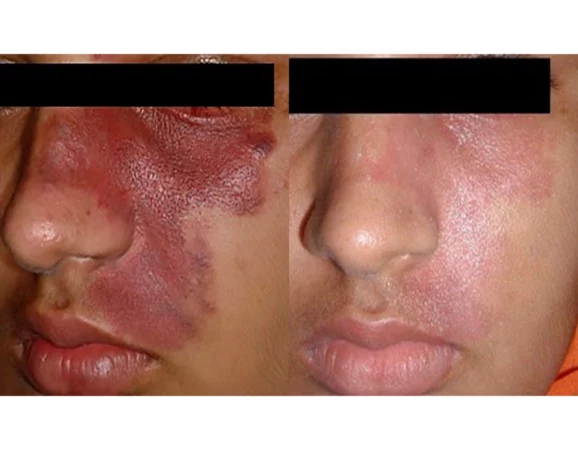
Vascular laser for port wine stain
Ask us more about this treatmant
Preferred Consultation
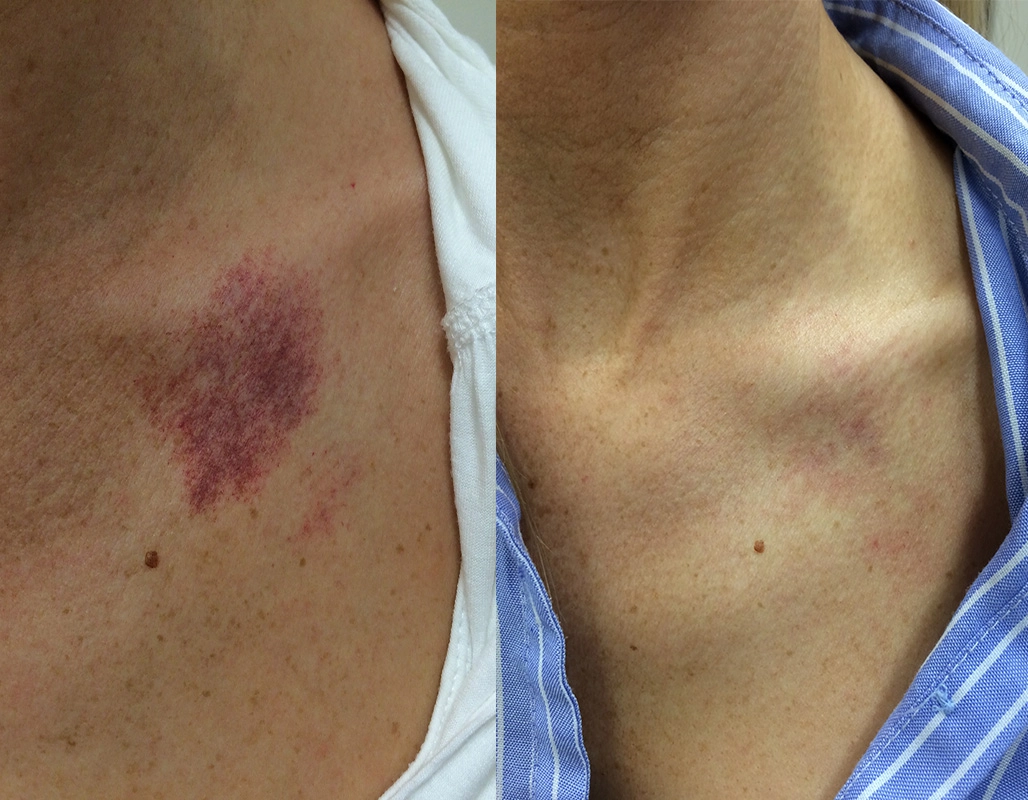
Before
After
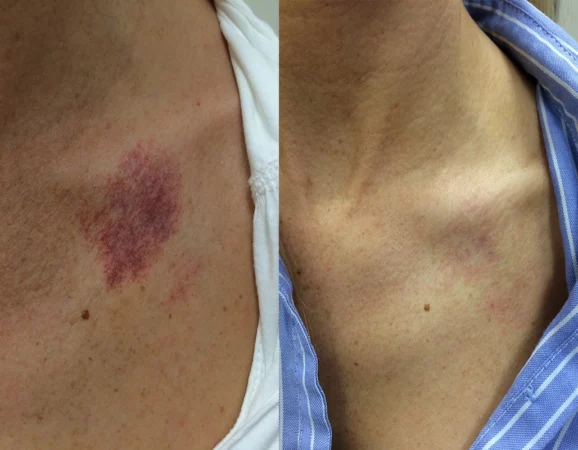
VBeam vascular laser for PWS. We use one
of 4 vascular lasers to treat these
birthmarks
Ask us more about this treatmant
Preferred Consultation
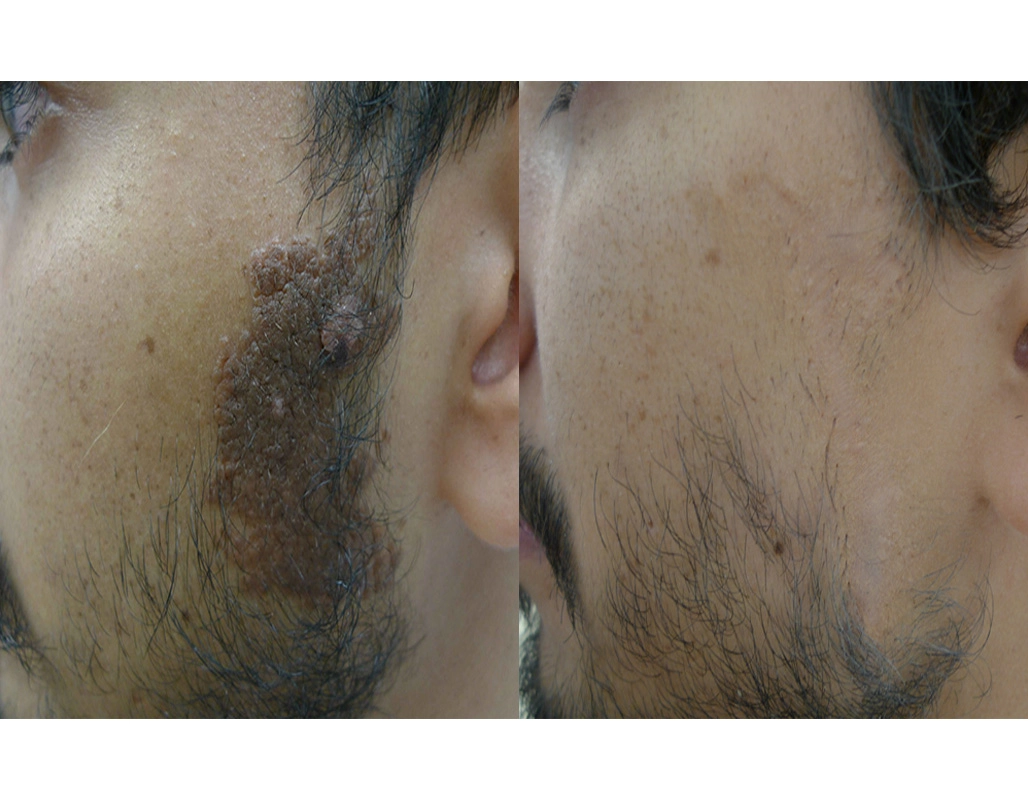
Before
After
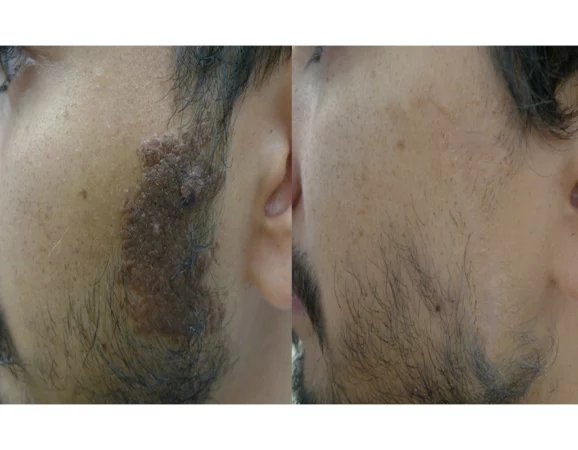
Serial excision + CO2 laser for CMN. These
birthmarks are best excised
Ask us more about this treatmant
Preferred Consultation
Genital Skin Rashes & Conditions Treatments
Pearly Penile Papule Removal
Fordyce Spot Removal
Genital Wart Removal
Psoriasis can affect the genitals
We provide peace of mind
Laser removal of genital warts & STDs
We understand the stress of suffering an unknown rash involving the genital area. In most cases we can promptly identify the cause & come up with a management plan. You can organize a virtual consultation; however, a real time consult is more accurate as we can perform a through physical examination.
Our specialist dermatologists have extensive experience in the management of STDs including genital warts, viral infections, & unusual penile lesions. Combined with the very latest in laser technology, we can promptly treat your condition & alleviate your stress levels.
Papules & Penises
What causes genital itching?
Pearly penile papules or PPP are common lesions affecting the head of the penis. In some patients they can be marked in size & number causing embarrassment as they may resemble STDs. Fortunately, PPP can be efficiently & safely removed with lasers. Our dermatologists have extensive experience in the treatment of PPP. One simple treatment can eliminate PPPs with minimal downtime.
Common causes include scabies, yeast infections, eczema, dermatitis, sebopsoriasis, balanitis & genital herpes. With simple tests such as swabs, our team of dermatologists can promptly diagnose & treat your condition. Dermatologists are trained to diagnose & manage rare conditions of the genital area including syphilis, Zoon’s balanitis, lichen planus & other inflammatory skin conditions.
FAQs
Why choose Cutis Dermatology Brisbane?
Our specialists at Cutis Dermatology are experts in skin disorders including diagnosis & management of genital skin conditions. We make it easy for you to access the best quality treatment & support in Brisbane. With clinical expertise & the latest lasers, our clinic is conveniently located in just 10 minutes from Brisbane’s CBD.
We have created a relaxing space where you will receive the highest quality of care. Our dermatologists are highly trained to provide the best treatments possible.
When should you see a dermatologist?
Your GP can help with common conditions such as ingrown hairs, fungal & yeast infections.
Consider seeing a dermatologist if your genital itch is severe or doesn’t improve, or if you have accompanying symptoms like discharge, blisters, pain, or a rash.
A dermatologist may be able to promptly diagnose the cause of penis itch after examining your skin. We may also take a swab of your penis & send the sample to a lab for testing. This can confirm or rule out a virus, bacteria, fungal or yeast infection. We are also the experts in treating conditions such as pearly penile papules, angiokeratomas & Fordyce spots.
Do I need a referral to see a dermatologist?
No, however having a referral will assist you in claiming a rebate from Medicare. A referral is not mandatory.
For discrete problems like genitourinary health, most patients would like to see a dermatologist without a referral. You can also arrange a video conference if you would like more privacy. The downside about virtual consults is that the accuracy of diagnosis is not a good as a real time examination.
What are common conditions that affect the male genital area?
Benign skin lesions: include pearly penile papules, cysts, Fordyce spots, angiokeratomas of the scrotum.
Infective skin conditions: molluscum, herpes, warts, STDs, scabies, thrush.
Inflammatory & misc. Conditions: Zoon’s balanitis, psoriasis, vitiligo, eczema, dermatitis.
How are genital skin lesions diagnosed?
In most cases we can make the diagnosis based on clinical examination. For equivocal cases our dermatologists may order special tests including swabs or a skin biopsy.
Can I request to see a dermatologist of my own gender?
If you require an appointment for a genital skin condition & would like to see a dermatologist of the same gender, just let us know when you book your appointment with Dr Sarath (males) or Dr Charlotte (females).
Do we provide confidential virtual consultations?
Yes, we do. In fact, this is preferred if the diagnosis has been ascertained & you would like to book in for treatment. Our dermatologists offer private virtual consultations. Cutis Dermatology sees patients from all around Australia & Internationally.
Drop us an email & our staff will arrange a virtual consultation with Dr Sarath.
What types of lasers do we use to treat genital skin lesions in males?
Cutis Dermatology Brisbane has the largest portfolio of lasers in the Southern Hemisphere, including lasers for the sensitive skin of the genital area. We employ-
Ablative CO2 & erbium lasers to treat Fordyce spots & pearly penile papules. The lasers include special one millimetre spot sizes to treat even the smallest lesions. These lasers are also used with bigger spot sizes of 2-4 mm to treat genital warts.
Vascular lasers including the V Beam Prima, Perfecta, Derma V & Splendour X are used to treat angiokeratomas of the scrotum.
What are pearly penile papules?
PPP or pearly penile papules are angiofibromas of the penis. They are benign; however, laser treatment can markedly reduce the number of papules.
Cutis Dermatology Brisbane frequently treats patients with this condition from all around Australia, Asia & internationally.
How can we tell the difference between genital warts & other lesions?
In most cases a clinical examination can be diagnostic, however if the diagnosis is in doubt, your specialist dermatologist will conduct swabs or a skin biopsy for microscopic analysis.
What treatments do we have for genital warts?
Though there are many treatments for genital warts, namely cryotherapy, Aldara, TCA. electrosurgery, & excision, our dermatologists employ the latest laser technology to treat genital warts.
Lasers include ablative CO2 & erbium laser resurfacing. The advantage of lasers is that we can vaporize the entire wart in one treatment.
How can psoriasis present in the genital area?
Psoriasis is very common in the genital areas. It can present as red patches, areas of ulceration or scale. Commonly there is an overlap with sebopsoriasis. Your dermatologists can usually distinguish between different types of rashes. Occasionally a skin biopsy is required.
The most common type of psoriasis in the genital area is known as flexural psoriasis. This presents as shiny patches of skin in the groin & skin folds.
What is Zoon’s balanitis?
Zoon’s balanitis is chronic inflammation of the head of the penis. It affects uncircumcised men & is relatively common. A dermatologist can readily diagnose this condition via a physical examination. A biopsy can be useful in some cases.
Zoon’s is due to an inflammatory reaction to inflammation of the foreskin, which may be due to chronic irritation from dead skin cells, soaps & irritants. It is not sexually transmissible & not contagious.
How is Zoon’s treated?
The cornerstone of treatment is with soap substitutes, general hygiene & a bland emollient like Vaseline. We recommend Cetaphil or QV wash in the shower.
Your dermatologist will also prescribe an anti-inflammatory ointment in a pulsed matter, namely a specified time on & off. Calcineurin inhibitors are also useful.
What is molluscum & how do we treat it?
Molluscum contagiosum is a common STD that presents on the penis as tiny lumps & bumps. It may resemble pearly penile papules however molluscum is umbilicated & present on the shaft, glans penis & surrounding skin.
Treatments include cryotherapy, nick & flick with a needle, BPO, Aldara, & laser. A dermatologist can easily tell the difference between molluscum & other penile lesions.
How does tinea or jock itch present in the groin?
Jock itch refers to fungal skin infections known as tinea. These microscopic fungi live on your skin, hair, & nails. Fungal infections thrive in warm, moist areas including the groin, inner thighs, & buttocks.
Tinea infection causes a rash that itches or burns & often affects the genital areas. Skin is often red, flaky or scaly. On darker skin, the rash might appear grey or brown. A skin scraping is done to confirm the presence of fungi. Jock itch can be treated with topical creams or systemic tablets.
How do we treat vitiligo of the genital area?
Vitiligo commonly affects the genitals including the penis & scrotum. Though embarrassing, vitiligo does not affect sexual function or fertility. Effective treatments are possible & include-
- Anti-inflammatory medications & calcineurin inhibitors
- Narrowband phototherapy under Medicare
What does genital herpes look like and how to treat it?
Genital herpes presents as grouped blisters on the penis & genital areas. Initially the rash may itch. This is then followed by stingy blisters that will subside over 3-7 days to form crusts. Herpes most commonly affect the shaft of the penis, glans/penile tip & the genital skin.
A dermatologist can give a spot diagnosis in most cases, however viral swabs will confirm HSV 2 in early lesions. Early lesions can be treated with antivirals including Valtrex, Famciclovir & Acyclovir.
What is scabies & how does it affect the genital area?
Scabies is a common condition that affects the penis, scrotum, buttocks & groin areas. It causes intense itch, especially at night. There may be burrows & nodules on the shaft of the penis. This condition is secondary to mites. Scabies also affects the hands. It can be tricky to diagnose & a dermatologist can assist in the diagnosis & treatment.
It is super important to treat everyone that is of close contact to you. Scabies can be treated with Lyclear, sulphur & oral ivermectin. Post treatment itch can last up to 8 weeks.
What is syphilis & what are the symptoms?
Syphilis is not uncommon. In fact, dermatologists diagnose a few cases every year. This is a STD that is due to a bacterium. It can be passed on through sexual contact, including oral sex. The first symptom is a circular, red, & painless sore on your penis & genital area. If left untreated, it can spread and advance to other parts of your body.
As the infection progresses, you may experience rash on other parts of your body, such as your torso & hands, fever, headaches & swollen lymph nodes.
Syphilis is treated with penicillin or doxycycline.
What is gonorrhoea & what are the symptoms?
Gonorrhoea is caused by infection with the bacterium Neisseria gonorrhoea. It is spread by having unprotected sex with an infected person. In men, symptoms include:
- Thick, yellow or white discharge from the penis
- Pain, discomfort or burning sensation when passing urine
- Testicular pain
- Redness around the penis opening
- Discharge and discomfort
Testing for gonorrhoea may involve taking a swab from the urethra in men or by a urine sample. Gonorrhoea can be effectively treated with oral antibiotics. You will need to be re-tested 2 weeks after your treatment to make sure treatment has been effective.
What is idiopathic scrotal calcinosis & how to treat it?
This common but under reported condition presents as lumps & cyst on the scrotum. Each cyst measures between 2 to 18 mm in diameter. This condition can be diagnosed by ultrasound, CT scan or MRI scans or a skin biopsy.
The best specialist to treat this condition is either a general surgeon or a urologist.

